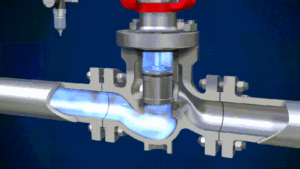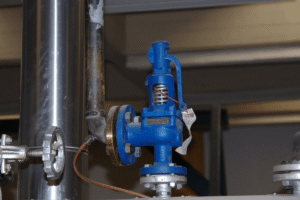In recent years, the integration of technology in household utilities has seen a significant transformation. One notable development is the Google Home valve control, an advanced feature that has become essential, especially in modern industrial and residential plumbing systems. This functionality allows homeowners and industrial engineers to manage and automate valve operations seamlessly. But what exactly is Google Home valve control and how does it benefit us? Let’s dive deep to understand its impact and potential.

Understanding Google Home Valve Control
Google Home valve control is a smart technology that allows for remote operation and management of water or gas valves using voice commands or through the Google Home app. It integrates Internet of Things (IoT) technology, enabling it to control the flow and pressure of fluids within a system. This control is crucial for maintaining efficient operations and preventing potential leaks or disasters.
Benefits of Integrating Smart Valve Control
1. Enhanced Efficiency and Convenience
With the integration of Google Home valve control, users can enjoy the convenience of controlling their water or gas supply through simple voice commands. This enhances daily operations and adds a layer of convenience by automating processes that once required manual intervention.
2. Cost Efficiency
By minimizing human error and providing real-time insights, Google Home valve control can lead to significant cost savings. Regular updates and alerts help in preventing potential leaks or bursts, thereby avoiding costly repairs.
3. Safety and Security
One of the primary advantages of a smart valve control system is safety. Users can receive alerts about any unusual activities, such as unexpected flows or changes in pressure, which could indicate a problem in the system.
Application in Industrial Settings
In industrial settings, the efficient management of energy and resources is critical. The application of Google Home valve control in these settings ensures streamlined processes, energy conservation, and compliance with safety protocols.
Automated Flow Management
Industries can utilize smart valve technology to automate the regulation of materials, leading to improved productivity and less downtime.
Integration with Other Smart Systems
The integration capabilities of Google Home valve control allow seamless operation with other smart systems, enhancing overall systems efficiency.
Challenges and Considerations
Technical Limitations
Despite its advantages, there are technical challenges that one might face. Ensuring compatibility with existing hardware and setups can sometimes present challenges. It is crucial to ensure that systems are in place that can support this advanced technology.
Data Privacy Concerns
The integration of smart systems always raises questions about data privacy. It is essential to ensure that secure networks are used and data is protected to maintain user privacy.
Future of Smart Valve Control
The future is bright for smart systems like Google Home valve control. As technology advances, so will the control capabilities, leading to even more efficiency and convenience. Moreover, with continuous research and development, the integration of AI and machine learning could enhance the predictive capabilities of these systems.
Relevant Links for Further Exploration
To read more about the advances in plumbing technology, check out Smart Valves & Plumbing. For guidance on home plumbing maintenance, this article on Pipe Maintenance Tips is invaluable. Finally, check out IoT in Valve Automation for more insights on valve technology.

FAQs About Google Home Valve Control
How does Google Home valve control work with existing systems?
Integration usually requires an IoT-compatible valve and configuration to communicate with the Google Home system effectively.
Can Google Home valve control save costs on water bills?
Yes, by preventing leaks and optimizing usage, it can lead to cost savings on your water bills.
Is it safe to use Google Home for valve control?
Using it is safe; however, users should ensure proper installation and regular updates to maintain security standards.
This article contains affiliate links. We may earn a commission at no extra cost to you.



